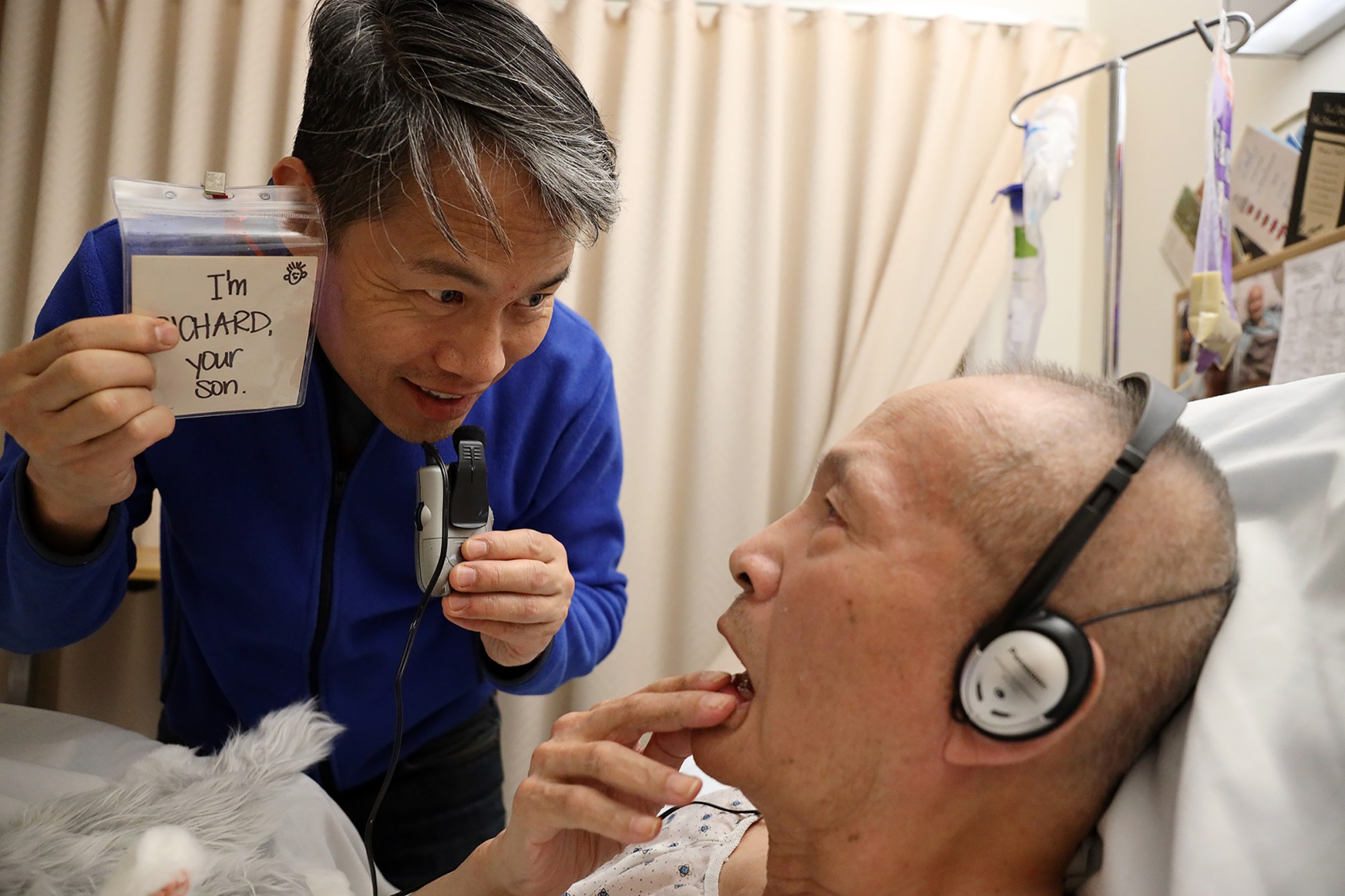
- Film
Docs: “Unconditional” Spotlights the Heartrending Difficulties of Caregiving
A delicate, well sketched, and emotionally substantive unpacking of the many complicated feelings attached to tending to a family member either in distress or facing an incurable disease, the documentary Unconditional lends rich if melancholic dimension to the saying that life can only be understood backwards, though it must be lived forwards.
Directed by MSNBC reporter and anchor Richard Lui, and executive produced by Maria Shriver, Montel Williams, Lauren Miller Rogen and Laurie Hernandez, the film charts the journey of three families through turbulent waters of forced self-discovery. Timed for May, which is both Mental Health Awareness Month and Military Caregivers Month, Unconditional is set for theatrical release in 14 cities, in addition to streaming and VOD platforms (see article’s end for complete details).
At the heart of the movie is part of Lui’s own story. When his octogenarian father Stephen is diagnosed with Alzheimer’s, it upends Richard’s life. As the condition progresses, Richard adjusts his work schedule and travels back and forth between New York City and San Francisco three weeks per month to assist his mother in taking care of his father. Eventually, the family opts for assisted care, but of course the tough decisions don’t stop there.
The second subjects are Amy and Luke Bushatz, who live in Alaska with their young sons Dave and Huck. Amy is a journalist who focuses on caregiver stories, in no small part because her husband suffered a traumatic brain injury in 2008 while serving in Afghanistan. Dealing with PTSD, memory impairment, and other conditions, Luke talks about triggered, intrusive reflections on old combat threats, as the couple navigates the daily frustrations and recalibrations (being angry at the condition, not a person) of a situation which casts a somewhat heartbreaking shadow over the children’s view and understanding of their father.
Finally, Unconditional also tells the story of Dr. Kate Hendricks Thomas and her husband Shane Thomas, both of whom are combat veterans. Kate is stricken with a rare and aggressive form of breast cancer (for which she has no genetic markers) after serving near a burn pit. As the couple deals with chemotherapy and other treatments (including a denied benefit claim), they struggle most with how to best prepare their young son Matthew for the harsh, sooner-rather-than-later reality of Kate’s mortality.
Spanning more than a half-dozen years in some of its footage, Unconditional is effortlessly engaging but also smart about the way it subtly explores identity.
Allowing genuine space for all impacted parties, Lui elucidates the impact of caregiving on primary providers as well as those merely in their orbit. In one of the film’s many glancingly moving passages, Lui reflects on his father’s disease “taking away little bits of his brain — and maybe me too.”
Unconditional also serves as a humanistic disquisition on the myriad challenges and intertwined nature of physical and mental illnesses — how one malady or diagnosis can, without careful minding, metastasize and drag down other people.
Families coping with similarly tragic issues but with less healthy and well-regulated communication systems will still recognize the fortifying validations and valuable lessons of this presentation, even as it perhaps reads as just a little idealized. The graceful rhythms of Michelle Chang’s editing, intercutting between these three heartrending stories, triggers the heart’s tripwires of swollen sympathy as these families face down difficult and inescapable truths of trauma and disease.
Presented by community partners AMC, Deluxe and Universal Pictures, Unconditional plays theatrically this month in 14 cities. The film is also already screening on PBS (check local listings), and available on streaming via PBS Passport. Beginning June 5, it will additionally be available via Amazon Prime Video and for rental via Apple TV. For more information, visit www.UnconditionalMovie.com.

